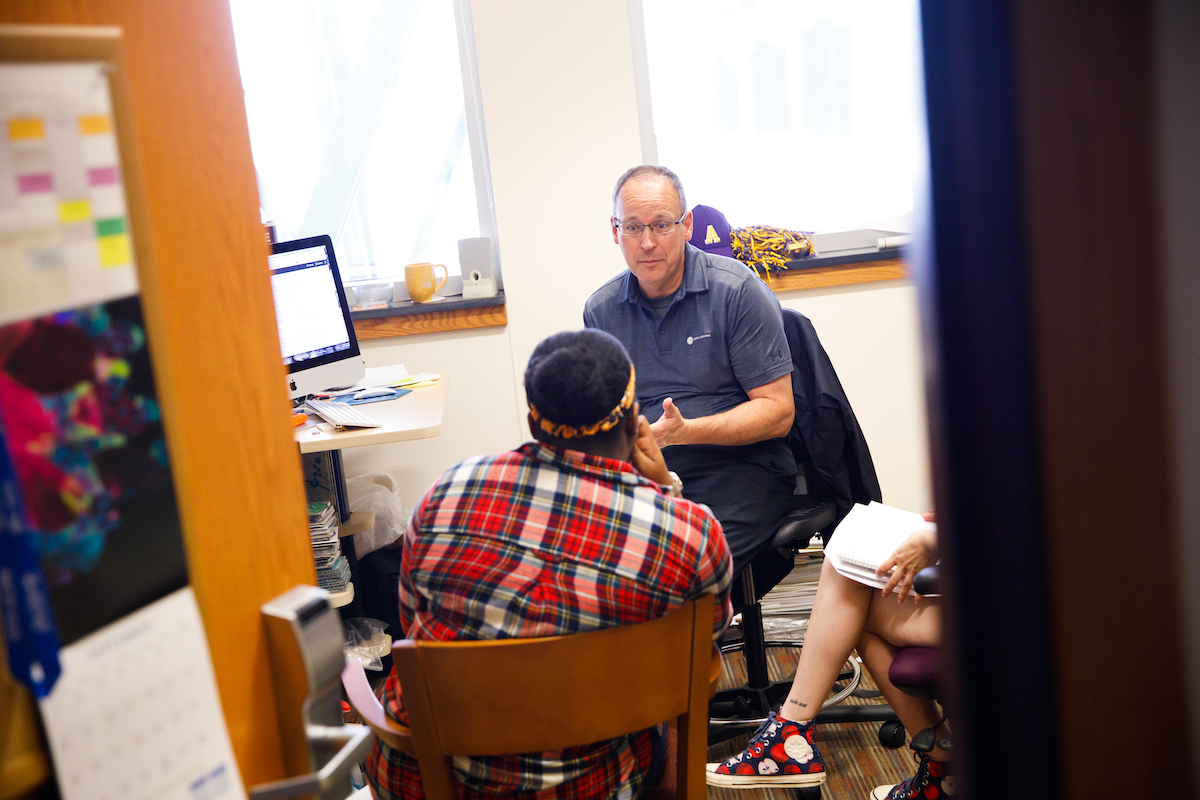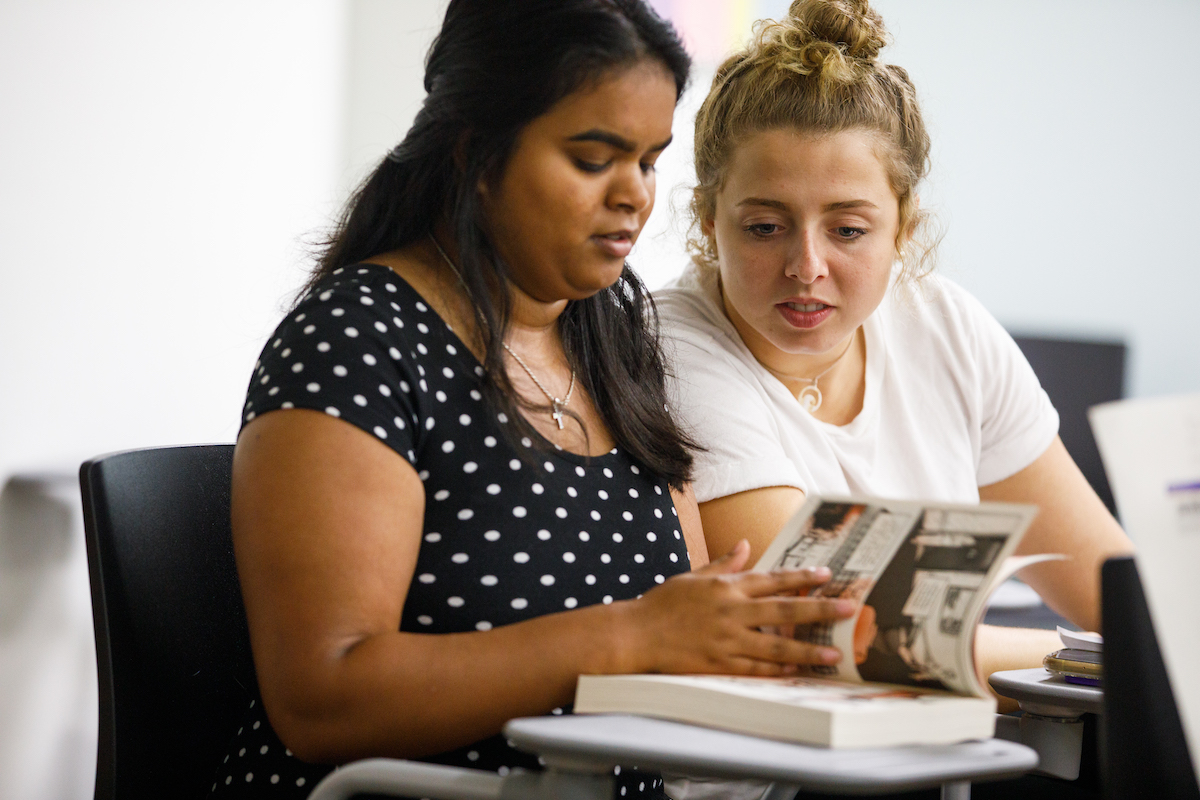Semester in Buenos Aires immerses Lauren Farley, ’24, into new culture
From eating out to looking at political art (and of course, learning to tango), her time in Argentina’s capital provided new world perspectives.
March 13, 2023
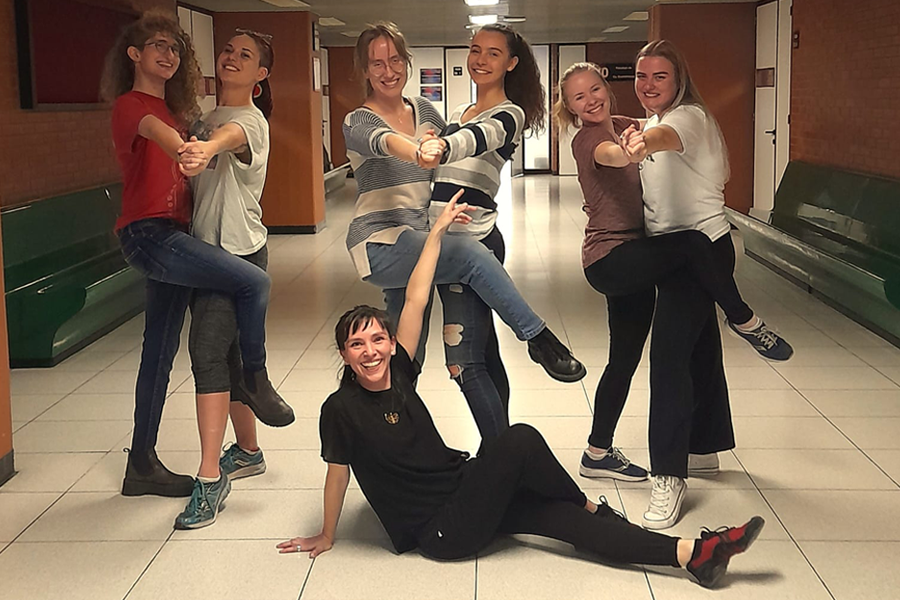
By Jake Weber
The experience of a new place and a new culture is at the heart of being off-campus – but when one culture’s polite is another culture’s cold, the experience can be a little tough. Lauren Farley, ’24, learned this during her recent semester spent in Buenos Aires.
“In American restaurants, you get seated, someone asks you what you would like to order, they bring you the check and you leave, “ said Farley, a junior majoring in Spanish and art history and a member of the Prentiss M. Brown Honors Program at Albion College. “In Argentina, you have to wave over the waiter when you are ready to order, then you wave down the waiter again when you are ready to leave.
“That felt really strange and sometimes I felt embarrassed to make mistakes when ordering so I wouldn’t eat out by myself,” she said. “But I got over it as my knowledge of social customs increased.”
With four months and five college courses in the capital city, Farley’s knowledge of Argentina has definitely increased. In three of her courses at la Universidad de Belgrano, Farley studied the cultural significance of Lunfardo (the Buenos Aires dialect), soccer and asado (a traditional barbeque); learned the history of the Argentinian tango and how to dance it; and explored Latin American culture through film.
The semester also boosted her knowledge base for the Spanish and Art History majors Farley will complete at Albion. She took an advanced grammar course (in addition to the 24/7 language immersion) and a contemporary art course that introduced her to 49 distinct artistic movements in Argentina’s history.
“I feel like I really achieved my goal of understanding a wide variety of art styles in Argentina in painting, sculpture and architecture,” Farley said. “The art slowly incorporated itself into my daily life. I have such a great appreciation for 20th century Argentine art, especially because I could really see the connection between what was happening politically in the country and how it affected the kind of art that was made.”
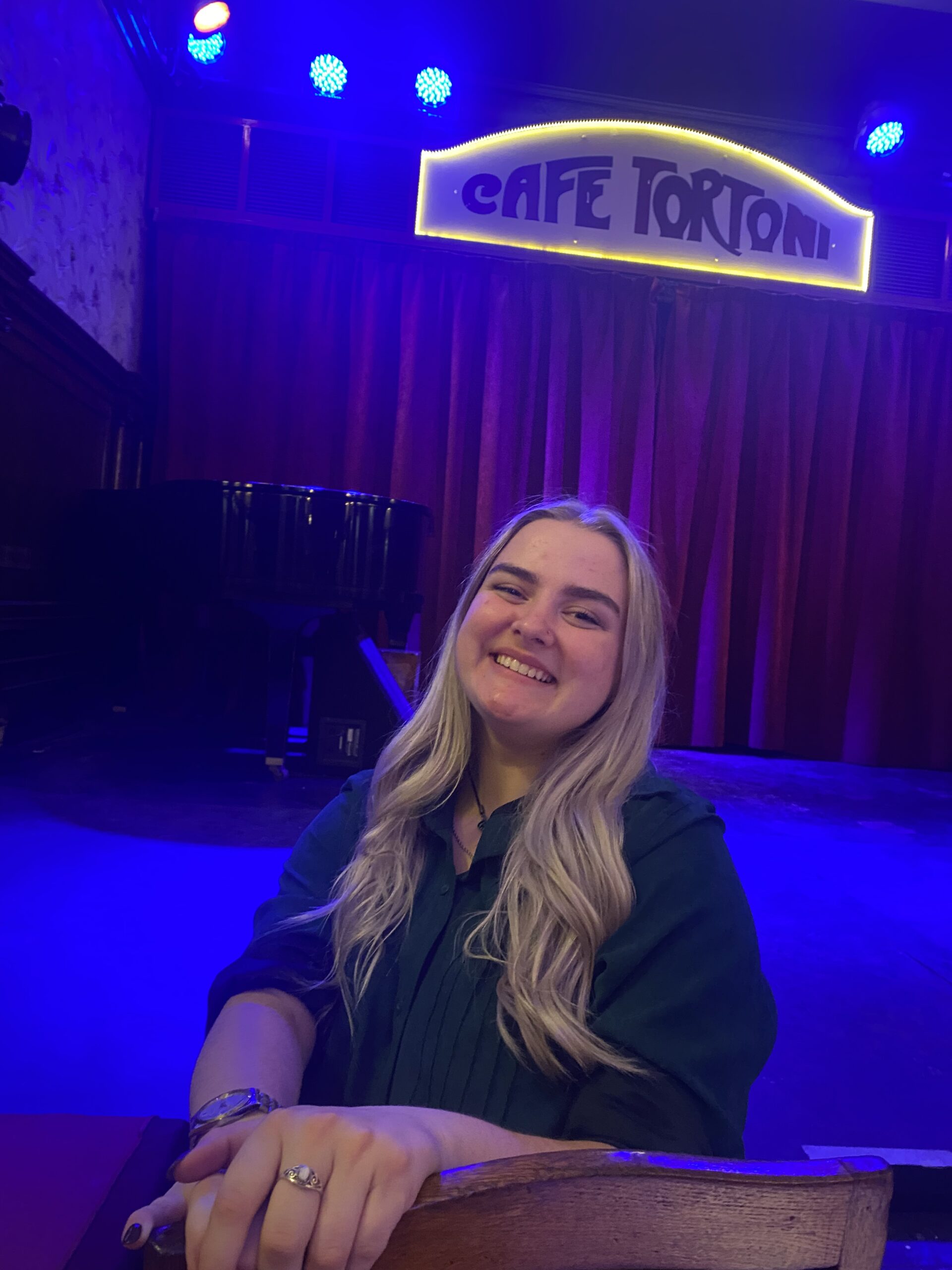
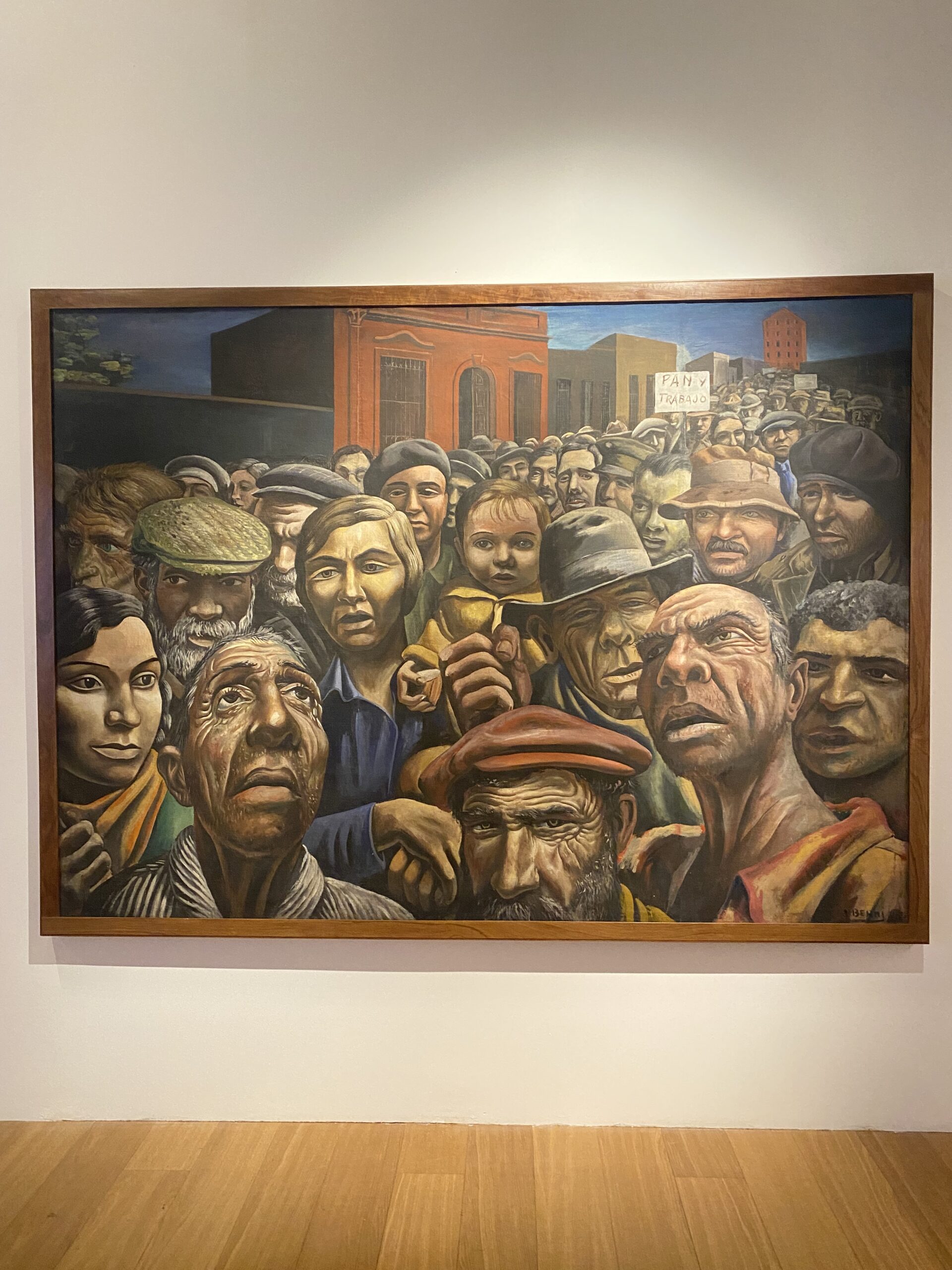
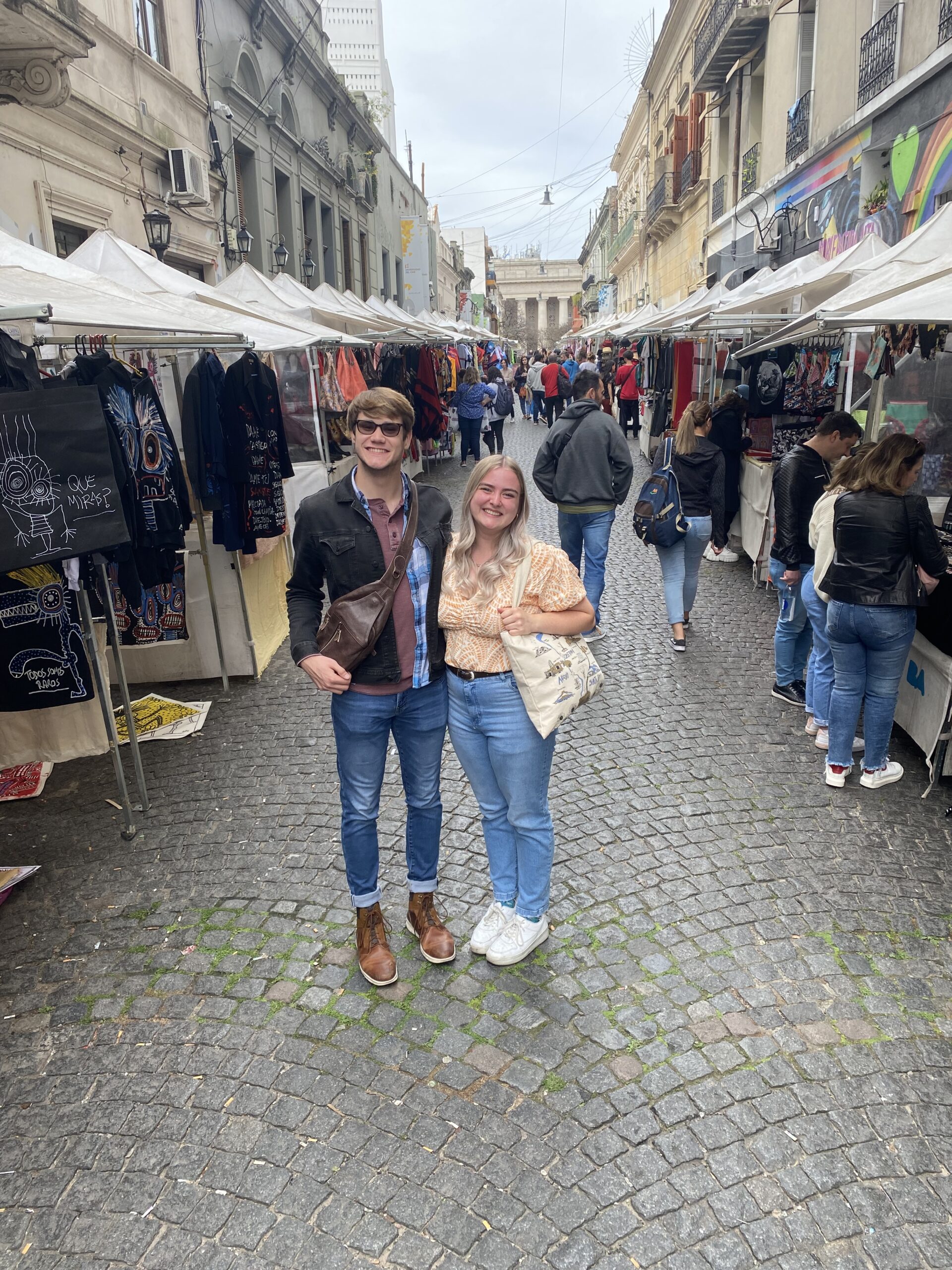
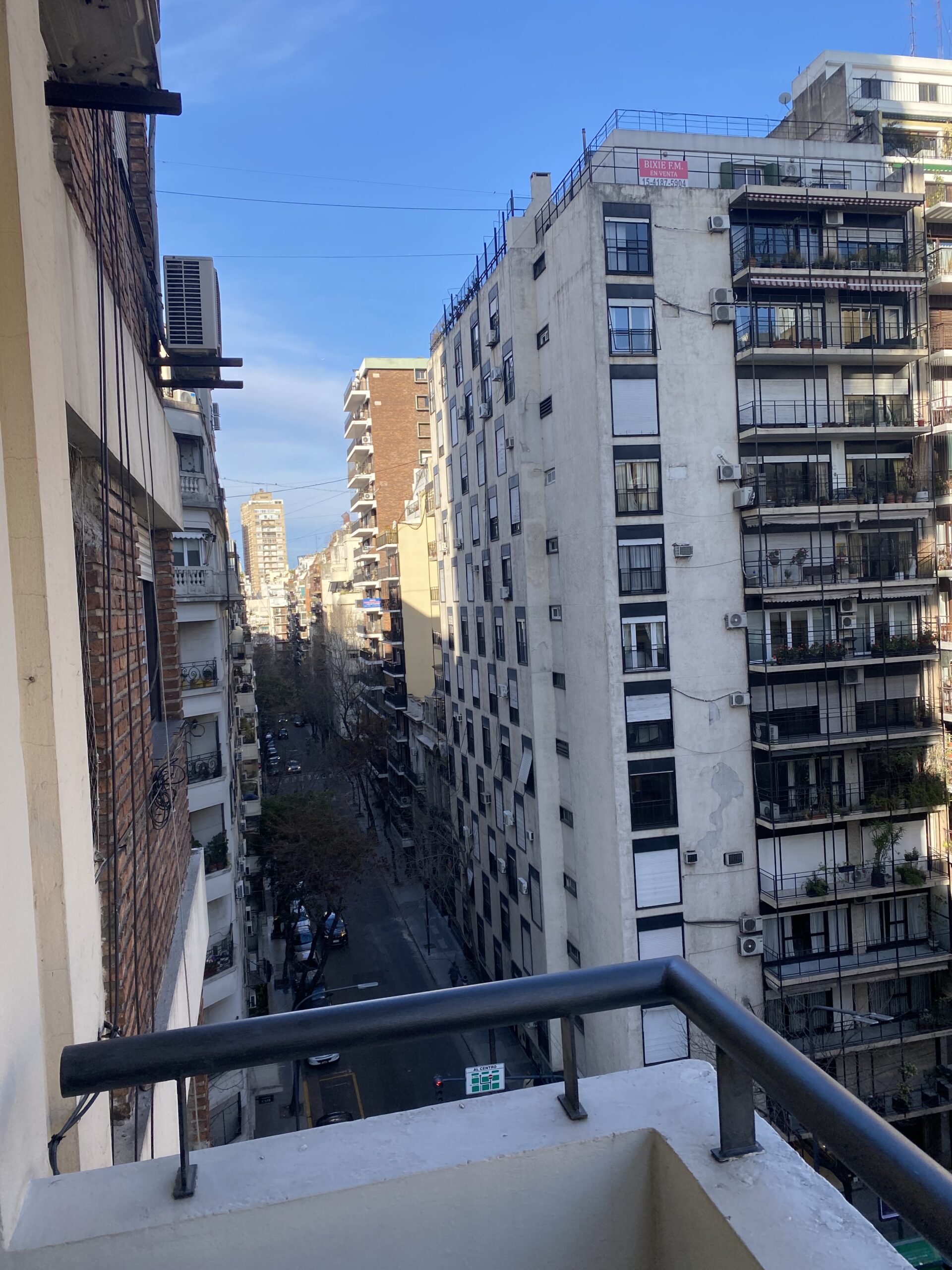
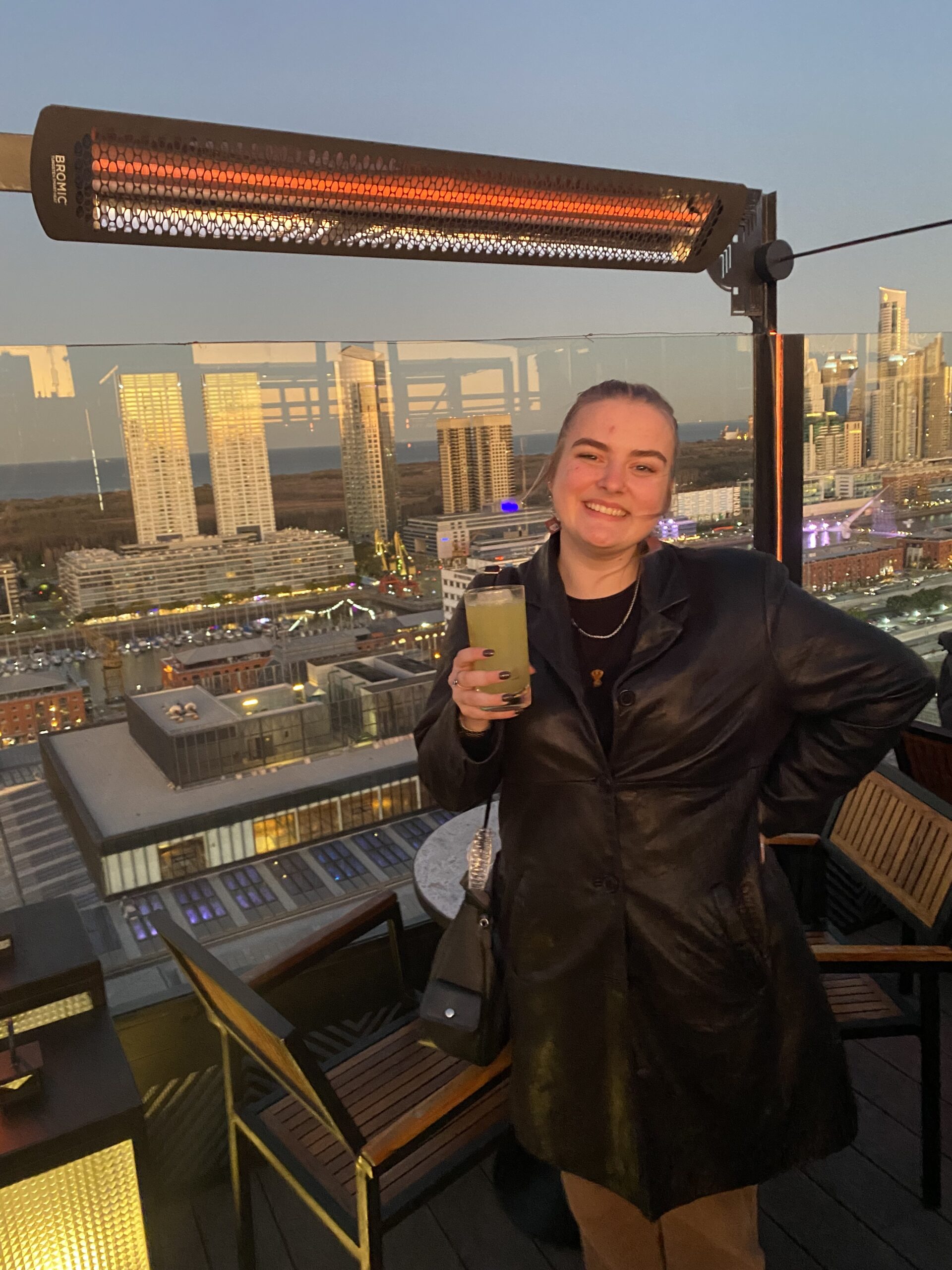
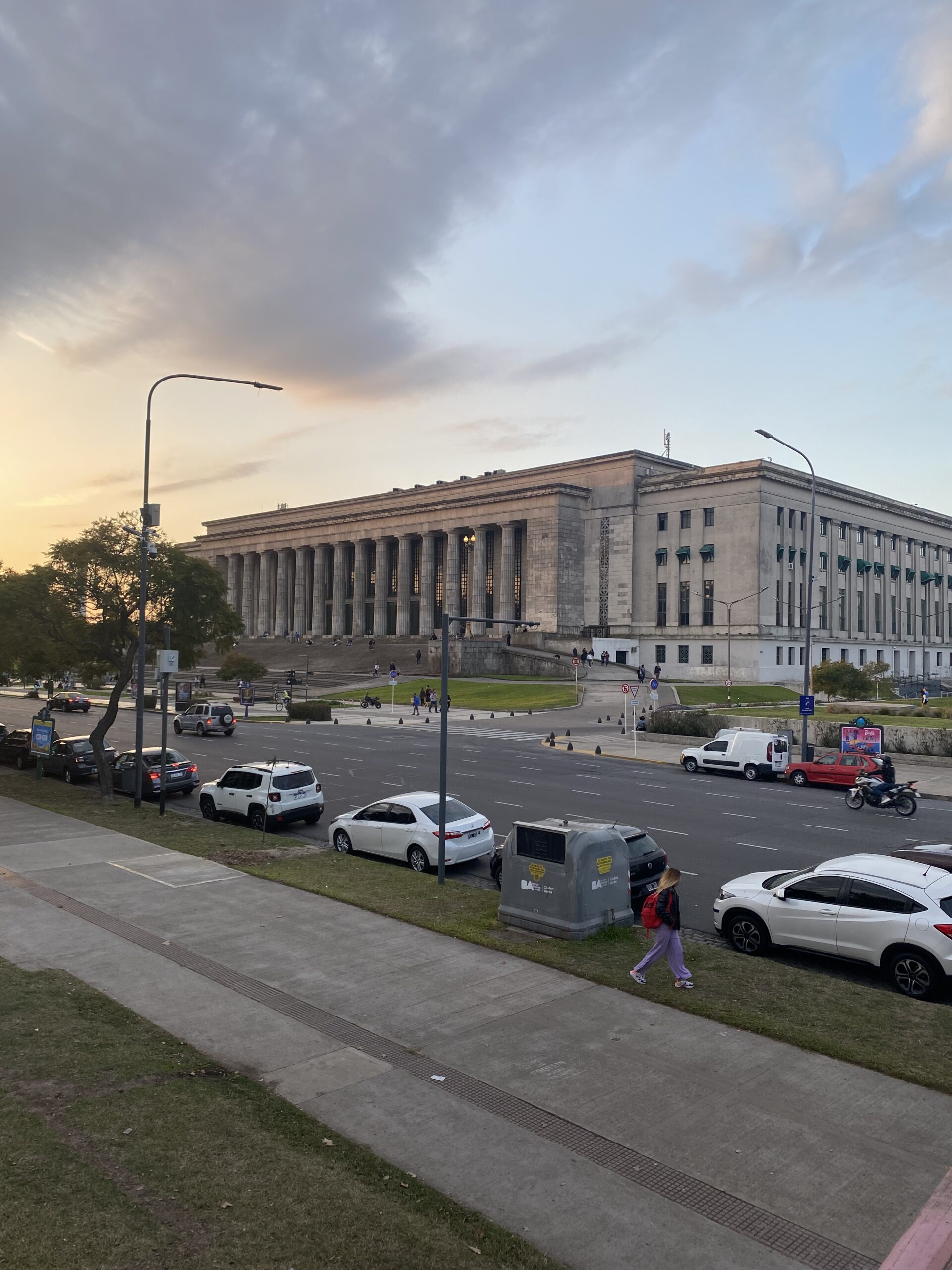
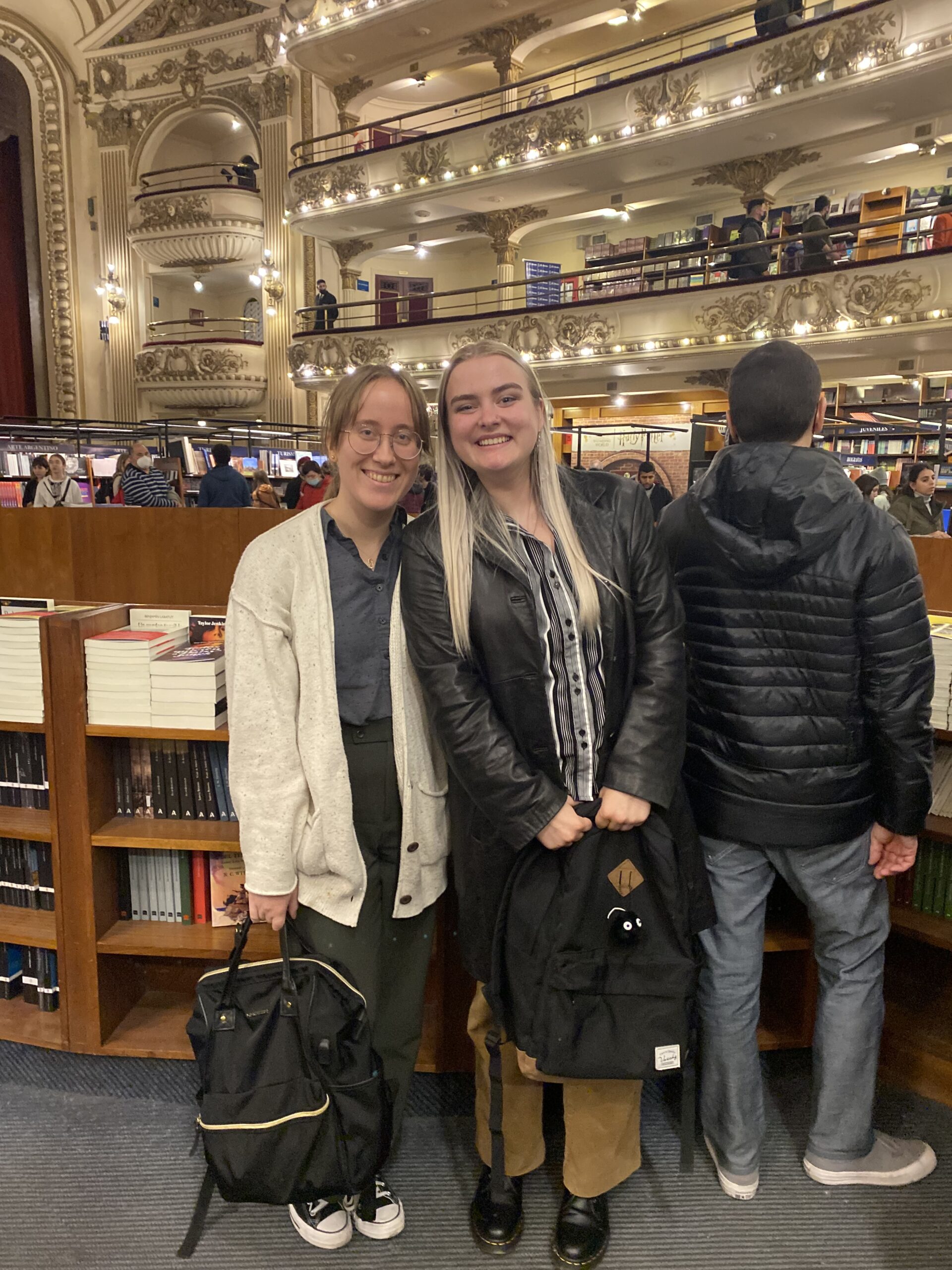
Farley also developed an expertise with Buenos Aires’ public transportation, which she used to visit many of the city’s museums and cultural neighborhoods. “Almost half of the people who live in the city have either Italian or Spanish heritage which heavily influence the food and the dialect,” she said. “I also learned that soccer is incredibly important to many people in Latin America, but especially in Argentina. They worship Diego Maradonna and Lionel Messi almost as if they were gods, and rivalries between the local teams run very very deep.”
The experience also gave Farley a new perspective on her home country.
“During my time in Buenos Aires, inflation varied greatly, there was an assassination attempt on the vice president, the vice president was on trial for corruption, and there were all kinds of protests. Although there is a lot of turmoil in our country right now, I was happy to come home to a country where those things weren’t happening,” she said.
Another challenge was the not-so-simple task of keeping track of her money.
“There was great variation in how much money you spent using card versus cash, and exchange rates would also change based on where you made the exchange,” she said. “That was really complicated but within my first three weeks, I started to find out what worked for me (where to go and what rates to watch).”
Challenges aside, Farley anticipates a future that’s not so different from her semester abroad.
“I would love to get a graduate degree in museum sciences while living abroad,” she said. “I have known for years that I wanted to live somewhere where I would speak Spanish every day, and this was like fulfilling that childhood dream. I loved every minute of it.”
